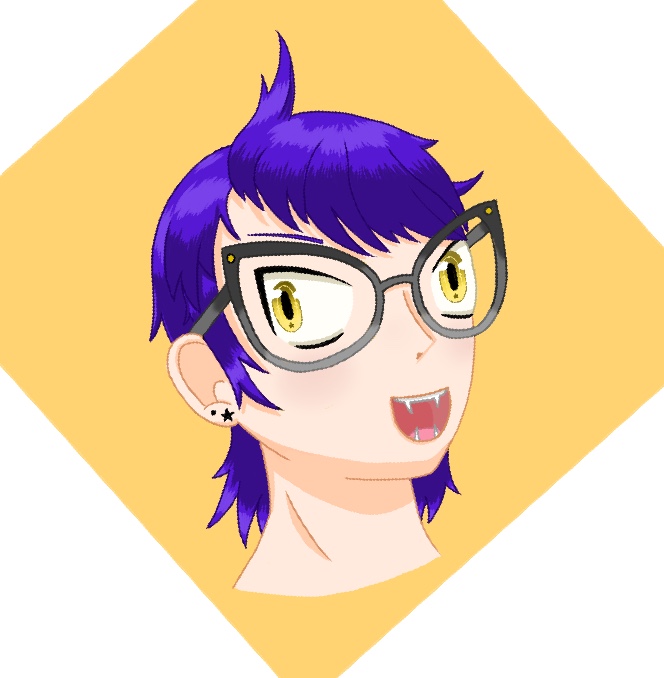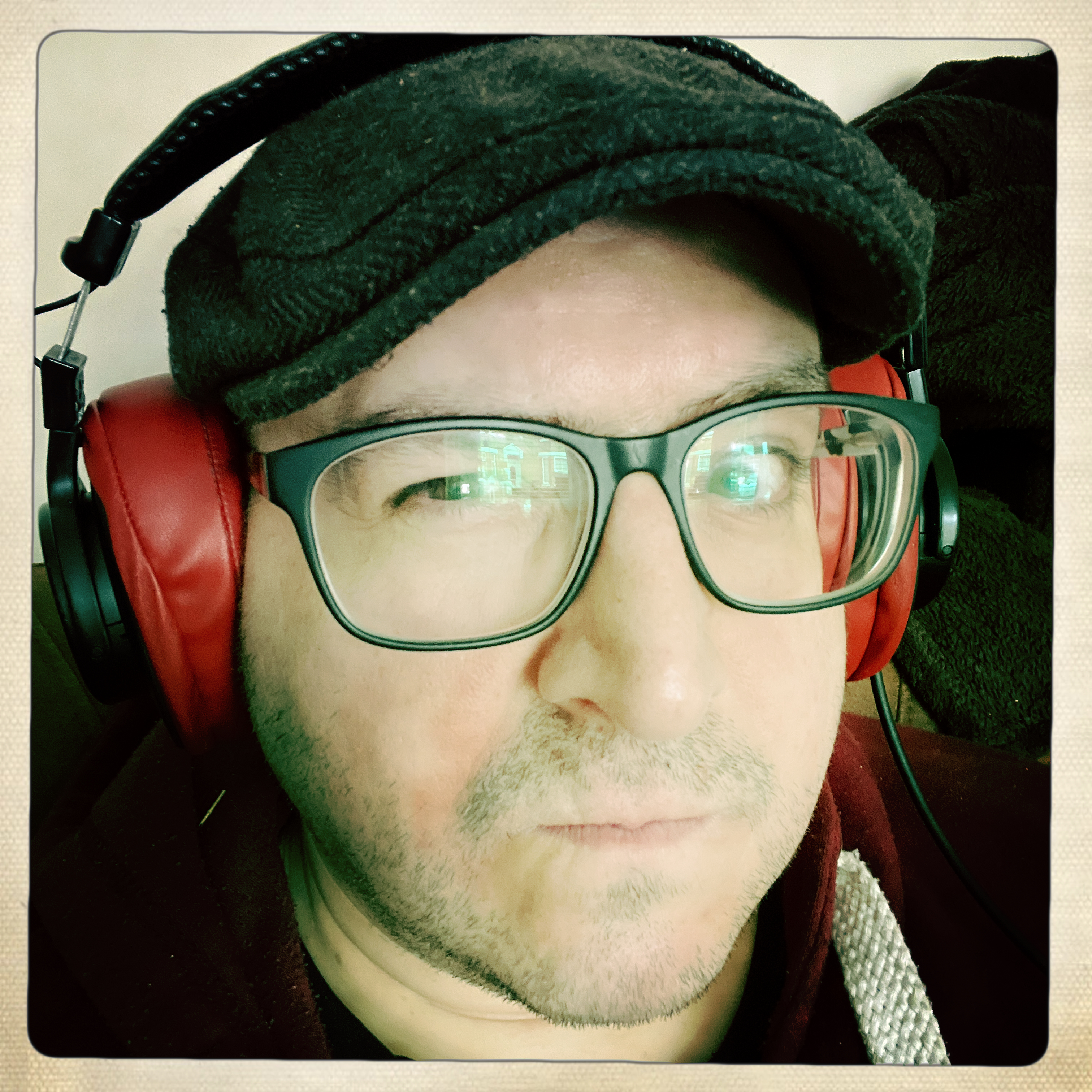Disclaimer: I have no quarrel with the mods using the term in the creation of this community. I understand why they chose it, as even if they share my disagreement with the term when applied to ADHD, there’s not really a better inclusive term. “Mental illness” is really the only other option, and naming a community that would probably invite darker discussions that the mods might not be prepared to handle.
Another disclaimer: I think the term is perfectly valid when applied to autism, as autism is not, to the best of my knowledge, a mental illness so much as a difference in processing. Being autistic is only “bad” in the sense that our society discourages autistic traits. (Apologies if this is wrong; I’m neither autistic nor especially knowledgeable about autism.)
The term “neurodivergent” implies that there’s nothing wrong with you if you have ADHD–you’re just special and different. But my ADHD is an illness that requires treatment. A lot of people will tell you that the only reason ADHDers struggle is because society is set up wrong, but I don’t think that’s true, at least for me. Being unable to remember anything, unable to self-start, and hypersensitive to rejection would be massive problems in any world. Sure, the world today is particularly brutal for ADHDers in a way we could probably mitigate if we reorganized society to be kinder, but that doesn’t mean ADHD isn’t ultimately a disorder that some people need to treat with medication and therapy.
Right out the gate, I don’t like the ‘superpower’ narratives or the ‘something we should get rid of entirely’ ones myself for both ADHD and autism, as someone with both.
but that doesn’t mean ADHD isn’t ultimately a disorder that some people need to treat with medication and therapy.
First off, I agree that therapy can be big. The difference with ADHD coping methods is that I’ve found the ones have therapists recommended me generally helpful or well-intentioned neutral, while the vast majority of the autism ‘coping methods’ I’ve gotten have ranged from unhelpful to legitimately harmful.
Second is the medication point; some people don’t want or need medication, and that’s fine. Some others might not have a choice either way. I don’t have as many options there when it comes to ADHD because of anxiety and vice versa, so I might never have the option of having my ADHD mostly or completely treated through medication.
I mostly feel like it’s up to the individual. I kind of see the term as a net neutral and quite situational. I’ve found reading through the replies here to be quite interesting!
I like neurodivergent in the same way I like queer.
It’s got a real punk feeling; I don’t into fit in to your normalised perception of reality, I don’t need to and I relish not fitting into this narrow definition of what it is to be.
Neurodivergent also recognizes the overlap of a lot of these conditions, and the fact that the scientific community hasn’t finished researching and disambiguating these things.
I always that of neurorivergent as “my brain works different”. That applies to autism as well as ADHD. I don’t think the fact that there is medication for it is important. People with autism struggle just like people with ADHD. Not just because people don’t understand them but also because they don’t understand people. I have a friend with autism and I have ADHD. We both struggle because of our brains.
My friend uses “neurospicy”
That’s why “neurodivergence” is used instead of “neurodiversity”.
The term “neurodivergent” implies that there’s nothing wrong with you if you have ADHD–you’re just special and different. But my ADHD is an illness that requires treatment.
I think the term is perfectly valid when applied to autism, as autism is not, to the best of my knowledge, a mental illness so much as a difference in processing.
As someone with both ADHD and autism, I want to touch on a perspective I think might be missing here (if others have commented similarly, excuse me for being a parrot). Both definitionally and experientially, autism and ADHD are both disabilities. Both come with strengths; autism makes me really good at learning patterns which helps with language learning, for example, and ADHD helps me have a large amount of focus however controlled on a specific topic. Yet, both are still disabling.
Autistic people constantly are confused by allistic (read: not autistic) people in their communication style as well as the overreliance on things like body language to convey meaning. Autistic people also deal with sensory overload issues.
ADHD people struggle to focus on tasks no matter how much they want to focus on them.
I could include more examples, but that’s not the purpose of this comment. This could also be stemming from my autistic perspective where when I, specifically, use the word “neurodivergent,” I use it to mean a collection of disabilities such as autism, ADHD, and OCD, and that’s it. I simply view it as a label much like what the label of “queer” is today despite its troubled history.
That’s a fair perspective. However, the counterpoint I’ve often heard from autistic advocates is that autism is only a disability on allistic terms. If everyone communicated in a way autistic people understood, it wouldn’t be a disability. This could be completely wrong, of course, but it’s what I’ve heard argued.
I don’t feel like this is the case with my variety of ADHD. I feel like even if the world tried to accommodate my ADHD traits, I’d still struggle quite a bit.
While you do have a point that autism can be mitigated by society, in a way, so can ADHD. There isn’t just one model of disability. There still is that disconnect from allistics that autistics have, and some autistic people do in fact go to therapy to help mitigate issues with their autism (note here because I feel it’s important: a) autism is often comorbid with things like sleep disorders, OCD, depression, anxiety, etc and a lot of therapy for autistic people does revolve around that and b) I am absolutely not referring to ABA which is just conversion therapy).
Also, when I mentioned me being autistic and only using neurodivergent to mean the collective of disabilities mentioned previously, I had also meant that it felt like to me that you were proscribing a meaning and/or an impact of the use of the term neurodivergent (and neurodivergence by proxy) that did not exist, one seated in prescriptivism. I don’t particularly see any negative impact to people using the term(s) either online or in real life and I’ve seen multiple people who are neurodivergent themselves use the term(s) to refer to the collective community of disabled people as just a label. While I can just offer up the “It’s just a label that we’re using to mean [insert thing here],” you could argue that I can’t do that because of the impact, but I have not seen such impact. I and some others on here have compared the term(s) to the word “queer” used for people in the LGBTQ+ community, although it has a trouble history as a slur but the community is reclaiming it and using it for their own despite its problematic past. But unlike the “queer” label (used to mean identities falling under the LGBTQ+ umbrella), the “neurodivergent” label (used to mean the collective of disabilities) doesn’t really have such a past. Nor does it have such an impact either.
Because I’m itching to, I’ll go further with that queer-neurodivergent comparison. Not only is “queer” used as a catch-all for the LGBTQ+ community, it’s also a label itself used to refer to someone who doesn’t want to label themselves specifically but rather is just not-straight. Neurodivergent can be used in this way as well referring to some kind of disability along that spectrum but not necessarily identifying it in any way. Perhaps one doesn’t need to identify their disability because they know the symptoms and they have coping mechanisms to help them mitigate those symptoms. Perhaps they don’t have the resources to go narrow down that label into a more specific one. Or perhaps they don’t care.
Really, as a TL;DR to this comment, the label isn’t doing any harm and, at least in my perspective, does nothing to belittle or minimize the struggles of the people in the ND community.
Honestly, I liked the term a lot when I heard it. With competition like ‘learning disability’ and ‘a bit on the spectrum’, it was like a breath of fresh air. If it makes people who don’t have ADHD less likely to bully kids at school, then it may be worth the inaccuracy.
Plus, it hits the point that you can’t make broad assumptions about people with ADHD. Some people need medication/ therapy. Some people have coping strategies that reduce or eliminate the need for either. A lot of people are still trying to figure things out.
Lazy reply cause I’m tired, but could it be that your frustration lies on the neurodiversity movement instead of the term neurodivergent? A lot of your frustrations align with others’ criticisms of the neurodiversity movement, and I’m wondering if - because most people will conflate one with the other - you simply don’t consider yourself part of the neurodiversity movement instead?
I’m asking this because a lot of people here are saying they’re two different things, but if you go on like reddit they will talk about it like they’re the same thing. I want to make it clear that, they’re not, but if they’re being talked about like they are in widespread culture then I can understand your frustration with a term that is associated with something you don’t feel a part of, even if that’s not actually what it means
Perhaps. My only real exposure to either has been through social media, so that’s what my thoughts are based on. But I do feel like even if you divorce it from the neurodiversity movement, the word “neurodivergent” is to “mentally ill” as “differently abled” is to “disabled”: an unhelpful and somewhat idealized version of a more appropriate term. Though that specifically applies to it regarding ADHD, not every difference in neurology, as I said.
Oooo okay that’s a very interesting connection. To be fair though, I do have my gripes about how people treat the word “mental illness”, in that a lot of people treat it like it’s some gross word to avoid, that there’s a stigma that nono you shouldn’t identify with that. (Personally I don’t think the word “mentally ill” should have as bad of a connotation as it does right now, but that’s just my opinion and I don’t expect others to think the same.)
So I can see where you’re coming from with that. Even if you look at the initial, historical definition, it doesn’t negate the fact that the word neurodivergent is mainly used today as a way to say “different, but with a good connotation instead of a bad one”, and with a definition (vaguely) like that it can start to border on some toxic positivity. And I’m not sure if you’ve experienced something like this but I do find that I tend to think that people who put me on a pedestal or think of me as special or something don’t actually want who I actually am and all of them just think that I’m an exception to the actually negative stuff they hate. I’m not sure if I’m making any sense, uh tell me if this is confusing or not.
I don’t have ADHD, nor autism, just… suspected some flavor of neurodivergence. I don’t feel confident in putting it into a specific thing until I get tested. But I do identify with being neurodivergent because there’s nothing else to call me really when I don’t know what I have yet. I don’t really identify with the neurodiversity movement though, but I appreciate their existence. Just wanna put that out there so you know my biases.
I also realized you’re here to relate, not debate, so just a quick apology for fueling more debates. I don’t want to speak over your experiences, so I’ll ask instead, but do you mind if I give my own opinion about what “neurodivergent” means in relation to “mentally ill”?
I agree with you that “I have a mental illness” shouldn’t get a horrified reaction anymore than “I have an illness” does. It’s a shitty stigma we should try to break down.
Yeah, the toxic positivity is a big part of what I’m referring to here. I’ve been deeply disappointed to hear my fellow leftists say things like, “Under socialism, you wouldn’t need your ADHD meds! You’re not disordered, you’re just living in a capitalist society that doesn’t value you!” Which, while it’s true that living in a capitalist society makes things much harder on people with ADHD, I don’t think it’s true that none of us would struggle or need meds under a better system.
I totally understand why you identify with the term neurodivergent. It really does seem to be the best term that exists for people like you.
Go ahead. I’m perfectly down to have a discussion.
The term “neurodivergent” implies that there’s nothing wrong with you if you have ADHD–you’re just special and different.
I think that’s definitely something you’ve inferred but is not necessary implied.
For me, it perfectly describes a wide range of neurodivergent conditions such as ADHD, ASD, Dyslexia, Dyspraxia, et al. It describes a threshold that makes those different from neuro-diversity to where that person has a disorder that impacts their daily life.
Conversely, I feel that the term ‘neurotypical’ implies that theres nothing wrong with that person when those who are NT, tend to not say what they mean, talk in riddles and hold some very strange assumed opinions about things as well as considering themselves to be normative, very much to the detriment of those they think are outside the parameters they set in their minds.
“Mental illness” is really the only other option
That would imply there is a cure, which there absolutely is not, and that there is a normative ‘well’ condition.
It’s not that we don’t think ADHD is a disability; it’s that we’re more convinced by the social modal of disability than the “there is just something fundamentally wrong with your brain” modal.
For me, it causes me a LOT of problems, but I think most of those problems are looped around each other and exaggerated by society, and by the resulting secondary, problem-compounding problems that tend to pile up on top of adhd like depression, anxiety, cptsd, low self esteem, poor diet and sleep, and so on and on.
I see it exactly the same way I see autism. Not fundamentally bad, even though it absolutely causes issues. Autistic people, for example, run into heaps and heaps of trouble because of the difficulty they have communicating with more neurotypical people. They might miss subtle social cues and be ostracized, or be very direct to the point of being seen as rude, and get ostracized or fired from jobs and so on.
Meanwhile, off meds, I miss subtle social cues because I can’t always look at someone’s facial expressions and talk at the same time, and maybe there’s a song or an anxiety loop or a previous conversation topic stuck in my head. Or I can’t talk coherently because I think of a whole wordcloud of an answer all at once and can’t pick a linear route through it fast enough. It’s not so different, imo. The reasons are different but the resulting problem is the same, more or less.
And both ADHD and autistic folks experience sensory issues.
I suspect if there were meds that helped autistic folks the way meds can help many adhd folks, people would probably view it more the same way. Or if ADHD meds didn’t exist and we just had to exist without them.
Even as it is, autism is so much more stigmatized than unmedicated ADHD. If ADHD is an illness, and autism is not an illness but is a stigmatized but normal brain difference, why do autistic folks usually seem to have the harder time in the world? Why is society’s shitty response to adhd “ignore it, it doesn’t exist”, while its shitty response for autism is to widely adopt a child abusive “therapy” invented by the guy who invented gay conversion “therapy”?
I get tired of the people insisting we don’t have huge struggles or count for disability help, too. But tbh I also get sick of being told my brain is broken and that my adhd is an illness, because I don’t think mine is. I think it’s just different, albeit in an often very inconvenient way. But I see upsides to it too. I don’t think I would trade-in for a neurotypical brain, to be honest, despite all the problems. I like the creativity and the non-linearity of thought and the outside-the-box thinking and the hyperfocus adventures. I like my neurodivergent friends and the way our socialization works amongst each other. And I do have the meds, which help a lot with the problems.
For my, and my own adhd, it’s both a positive neurodivergence and a disability. Not an either-or.
All that said, I kinda don’t think “neurotypicals” per se actually exist, especially when accounting for the really dramatic plasticity of even adult brains, and the way experiences and thought patterns can and do continually change the structure of the human brain. And ADHD folks share symptoms with a lot of mental illnesses that aren’t considered neurodivergent normally.
Talking about neurodivergence is helpful because it’s a more positive and less medicalized lens for looking at things, in my opinion. I like it. But the neurodivergent/neurotypical binary idea can also become a problem.
Anyways. Different peoples’ experiences with adhd can differ a lot. If you see yours purely as medical disability, that’s a-okay with me, and you don’t have to describe yourself as neurodivergent, but I don’t see mine that way.
Perhaps on all sides of this we could benefit from being more careful not to describe other peoples’ adhd in authoritative tones based on our own. Like, I agree not to call your adhd neurodivergent, and you agree not to call mine an illness? (Tbh I think you did a good job in your post of talking about yourself rather than talking for others.)
/ramble I half-feel like deleting and might later but at this point I’ve committed too much so here you go I guess
Edit: also there’s so much overlap between autism and adhd I’ve heard some talk, sometimes, about whether they might be best classified as two forms of the same thing. shrug The science is still sciencing on this one.
I kinda don’t think “neurotypicals” per se actually exist
The more I learn about my own ADHD, and my wife’s ASD, the more convinced I am of this. There’s no such thing as “neurotypical”, just people that are better able to exist under society’s rules than others. Every one of us is the result of the experiences that have led us to where we are this moment in time, of all the neurones that have fired up and formed pathways to give us the skills and abilities and disabilities that make us who we are.
You are, of course, allowed to feel that way. But I’d trade my brain for a normie brain in a heartbeat. I’d still be me, just capable of taking out the trash. I see no upsides to my ADHD that aren’t canceled out by the signifcant downsides.
Hopefully a community like this where people share their experiences can help you to discover the ways in which your brain is wonderful and beautiful. I have quite a few partners with ADHD and I’ve found the following traits of theirs rather admirable:
- When hyperfocused on something, they have a drive I am envious of, being able to hone in on, complete, and do repeated tasks that I would find draining - there’s a level of perfectionism here that results in some amazing output but not something I would be able to focus on for as long or as intently as they did
- Many of these individuals have SO MUCH energy! I say this as someone who a few weeks ago put in over 10k kcal in dancing on a weekend (sundown to sunup mostly nonstop). I find it incredibly invigorating to be around some of these people because they’re just so alive
- The ability to be flexible and spontaneous is greatly appreciated. I’m someone who really likes to go with the flow and doesn’t have strong opinions on many decisions, and I find that I vibe incredibly well with people who have ADHD. The spontaneity seems to lend itself well to many of these folks being the shining star or center of a party
- I never thought of myself as a creative individual because the way creativity is typically framed by society doesn’t match with my particular kind of neurodivergence, but spending time around ADHD people who are so dang creative has helped me to both tap into my own creativity as well as to reframe what I think of as creative
I’m not necessarily saying that ADHD doesn’t come with benefits. I’m just saying that, for me at least, my ADHD’s shittier aspects undermine the benefits it gives me.
For example, I’m quite creative. But I don’t create much. Why? Executive dysfunction. I’ve wanted to be a writer my entire life. But I just don’t have the discipline (or executive function, call it what you want) to make it work. I’ve had the same novel idea for a long time. Wanna know how many words I’ve written? Zero. I’ve got a bunch of scattered, sometimes contradictory notes about the characters and setting, but I can’t make myself sit down and compile it all, let alone plot out a coherent story. I’ve tried writing without planning or outlining beforehand, and it works insofar as it gets words onto the paper, but at the end of it I’m left with a disaster that needs copious editing and no energy or interest in doing it.
I wrote a couple novels when I was a teenager. They will never see the light of day because after writing them, I never got around to making them into something decent, and now I’m no longer interested in the projects.
Even on meds, I just lack whatever it is normies have that makes them select a project or skill to work on and then follow through with it until they’re satisfied. The one and only creative thing I’ve ever been able to stick with is crochet, and even then, I took a six-month break from it and only picked it back up on a whim. And I only stick with crochet because it’s easy and mostly thoughtless; I won’t be able to do consistently anything that requires sustained mental effort, especially sustained mental effort.
Admittedly, I probably could write more consistently if I had some kind of outside force making me, but where do I find that? I both need structure and avoid it at all costs because it feels so suffocating. I could maybe get an accountability buddy, though I hate having to be accountable, but I doubt that would be enough. I fear the hell out of failing out of school, but if my dad doesn’t sit down with me and help me study, I just won’t do it half the time. Even with the meds. Even knowing my future depends on it. Even as a 27-year-old adult. Even knowing my dad is paying good fucking money to send me to school. My brain simply hates doing things. Hell, I even procrastinate on things I love.
What good is a writer who doesn’t write? I know I’m worth more than what I produce, yes. But still. The world could have my works, but it probably never will, and that depresses the hell out of me.
And none of this is even touching on rejection-sensitive dysphoria. RSD makes normal life events like breakups and failure into soul-crushing catastrophes. I’ve tried repeatedly to kill myself in part because RSD ensures things that happened years ago still hurt just as sharply as they did in the moment. There are some things I will simply never get over, and I just have to learn to numb the pain enough to keep living. Call ADHD a gift all you like, but the truth is that a healthy person’s brain should not try to kill them over every bad thing that happens.
Admittedly, I probably could write more consistently if I had some kind of outside force making me, but where do I find that? I both need structure and avoid it at all costs because it feels so suffocating. I could maybe get an accountability buddy, though I hate having to be accountable, but I doubt that would be enough.
I realize this is like 2 months later, but I read your posts and wanted to let you know about an online event/community called NaNoWriMo (National Novel Writing Month). It’s an annual event/challenge (traditionally in November) to write 50k (or your own goal) words in 1 month, with an explicit quantity > quality approach. I’m an aspiring writer in the same boat as you and participating in NaNoWriMo is the only thing that ever worked to get me putting words on paper, even during college. It provides some structure (daily or weekly goals) without being suffocating, and it adds a bit of a gamification/friendly self-competition element to the experience of writing, but the community itself is really laid-back, casual, and inclusive. There are also sometimes in-person writing get-togethers that can be very helpful to get that extra dopamine boost for writing. If you’ve already tried out this or something similar and it wasn’t for you, no biggie, I just wanted to highlight a potential writing aid that you/others reading might not have heard about.









